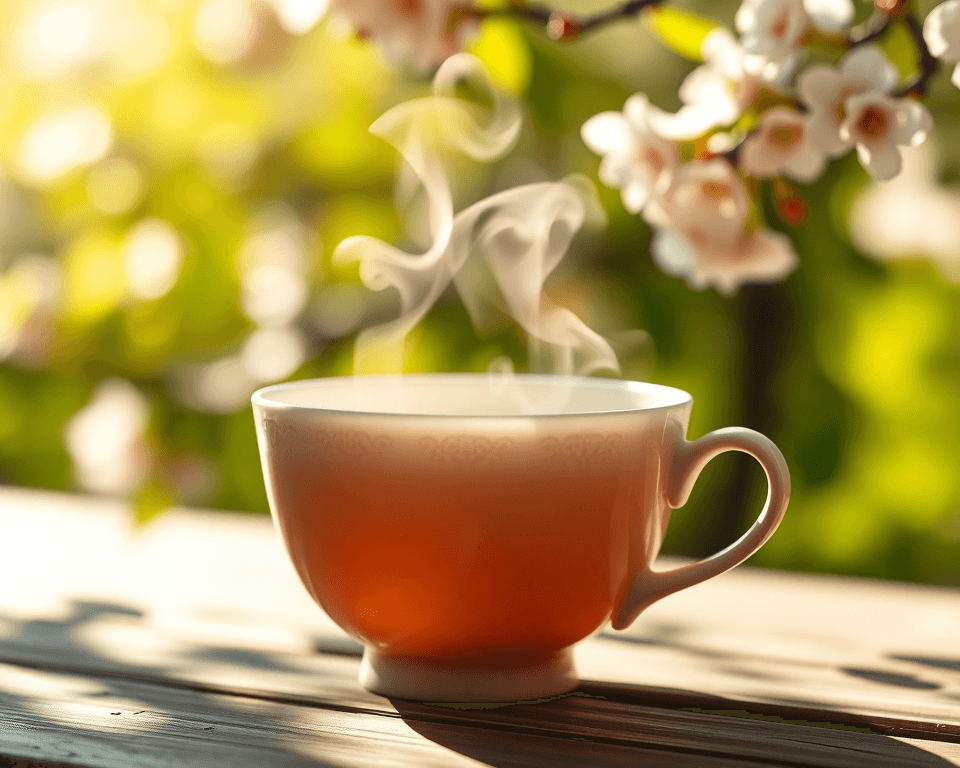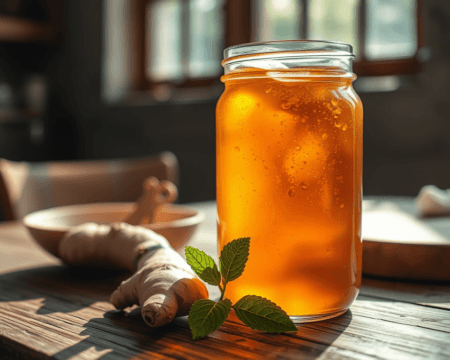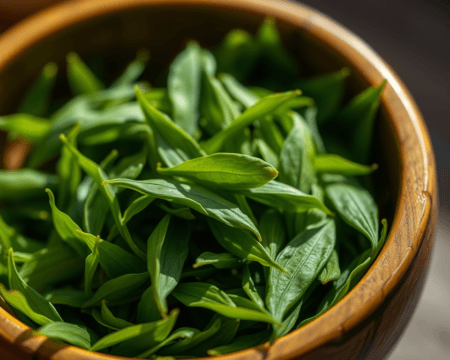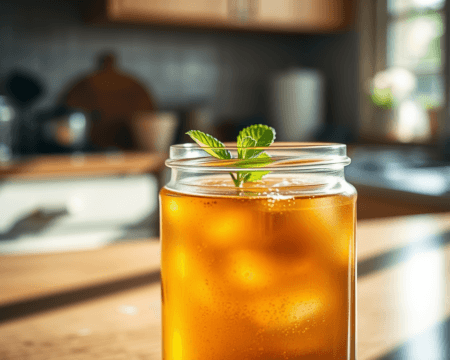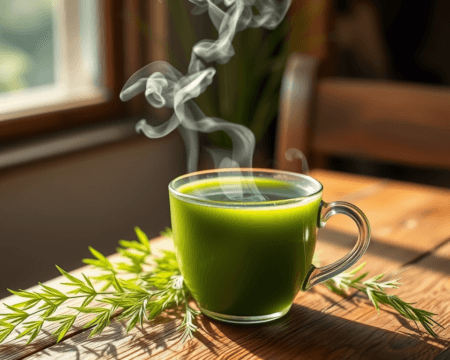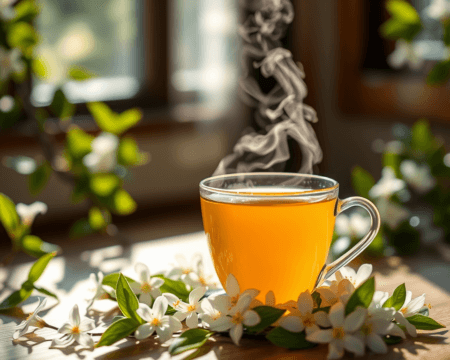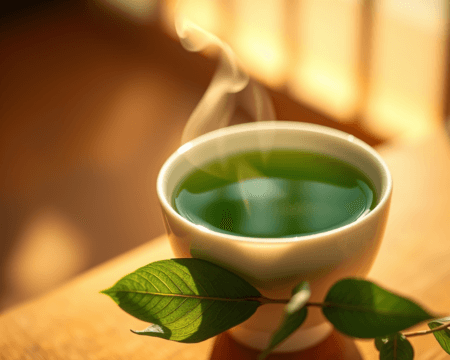There’s something about a steaming cup of tea that just hits right, but if you’re like me, you might’ve found yourself wondering how much caffeine is really packed in those delicate leaves. Let me tell you, understanding the caffeine content in Chinese tea isn’t just about a numbers game; it’s about knowing your drink and refining your experience. So whether you’re a tea newbie or a connoisseur looking to up your tea game, hang tight.
Key Takeaways
- Different types of Chinese tea have varying caffeine levels, influencing your choice based on your energy needs.
- Brewing methods and tea processing can dramatically affect caffeine extraction, making your preparation technique key.
- When comparing Chinese tea to other beverages like coffee and energy drinks, the caffeine content and health implications show significant differences.
- Many common myths about caffeine in tea can lead to misconceptions; let’s set the record straight with facts.
- Caffeine-free alternatives are plentiful, and many options offer delightful flavors without the jitters.
Caffeine Levels in Different Types of Chinese Tea
Popular Chinese Teas and Their Caffeine Content
Chinese tea comes in many flavors and varieties, each with its unique caffeine profile. Here’s a quick breakdown to get you started:
| Type of Tea | Average Caffeine Content (mg per 8 oz) |
|---|---|
| Green Tea | 20-45 |
| Black Tea | 40-70 |
| Oolong Tea | 30-50 |
| White Tea | 15-30 |
| Pu-erh Tea | 30-70 |
Black tea, for example, is where the action is, especially if you’re aiming for that energy boost to kickstart your day. Think about Keemun or Yunnan black teas—rich flavors with a solid caffeine punch. If you’re a fan of green tea, like Dragon Well, you’re still getting a refreshing boost but with a lighter touch. Compare that to oolong, which sits comfortably in the middle, giving a nuanced flavor and moderate caffeine.
Factors Influencing Caffeine Content in Chinese Teas
So you’ve picked your tea, but did you know that how you brew it can change everything? Here’s where things get interesting.
- Steeping Time: Longer steeping typically means more caffeine. If you’re aiming for a stronger cup, don’t be shy—let it sit!
- Water Temperature: Hotter water extracts caffeine more effectively. Think of it this way, if your water is barely simmering, you won’t get all the good stuff out. Aim for around 175°F for green tea and closer to boiling for black tea.
- Tea Leaf Size and Freshness: Finer leaves mean more surface area, which also leads to a quicker extraction. Plus, fresher leaves yield better flavors and more caffeine, so don’t skimp on quality!
Understanding these factors is crucial if you’re adjusting your tea for a specific energy output.
Comparison of Caffeine in Chinese Tea vs. Other Beverages
Caffeine Comparison with Other Types of Tea
Let’s switch gears and talk about how Chinese teas stack up against other popular options.
Herbal teas like chamomile or peppermint? No caffeine. They’re the chillest of the bunch, perfect if you want to unwind. Then there’s chai, packed with spices and still delivers a caffeine kick, but far less than a strong black tea. On the other hand, matcha is a powerhouse—a ceremonial type of powdered green tea that can have up to 70 mg caffeine per serving!
To keep it simple, here’s the rundown:
- Chinese black tea can range from 40-70 mg, while a typical cup of coffee sits between 95-200 mg.
- Energy drinks are even higher, often exploding past 200 mg, loaded with additives that can mess with your energy levels later.
Knowing this can help you choose what to drink when you need a boost versus when you want to calm down.
Caffeine Levels in Coffee and Energy Drinks
Speaking of energy drinks, let’s break those down real quick. You got your espresso shots with around 63 mg per ounce—yes, per ounce! An 8 oz cup can hit you with 500 mg if you’re not careful. Then you have cold brew, which packs a serious punch, sometimes exceeding that figure as well. You might think, “Hey, I’ll just stick with coffee,” but those drinks can lead to shaky afternoons and sleepless nights if you’re not careful.
Chinese tea can be a sneakier alternative to manage your caffeine intake without throwing off your whole day.
Health Implications of Caffeine in Chinese Tea
Positive Health Effects of Moderate Caffeine Consumption
Here’s where things really get cool: moderate caffeine consumption from Chinese tea can offer some great health benefits! It’s packed with antioxidants, which can help protect your cells. Research has shown that a moderate caffeine intake can actually boost metabolic rate and improve alertness—think about how sharp your brain feels after a good cup of tea.
And it’s not just mental clarity you’re looking at; various studies suggest that regular tea consumption may lower the risk of heart diseases. It’s about being smart with what you’re putting into your body.
Potential Negative Effects of Excessive Caffeine Intake
On the flip side, let’s not ignore the downside. Overdoing it on caffeine—especially if you’re loading up on those energy drinks or several cups of strong tea—might lead to problems like insomnia, increased heart rate, or just feeling jittery.
If you’re caffeine-sensitive, even a cup or two of black tea could feel too much. Understanding your limits is key here, so listen to your body.
Debunking Common Myths About Caffeine in Chinese Tea
Misconceptions About Caffeine in Tea
We’ve all heard it: “Tea’s caffeine will make you calm.” Not necessarily! It’s true that the L-theanine in tea can mellow the effect of caffeine, leading to a smoother buzz. But if you overload on tea with high caffeine, you can still feel those jitters.
Don’t let the myths swirl around your mind unchallenged! Knowing what’s true helps you make informed choices.
Facts Behind Brewing Time and Caffeine Levels
Another myth is that a longer brew time leads to better tea flavor—true, but it also means more caffeine extraction! This means the science of brews matters; don’t just rely on taste alone.
Use a timer next time you steep regardless of your tea type. Feel the difference as you adjust your brew time and get the caffeine buzz that feels just right.
Caffeine-free Alternatives to Chinese Tea
Herbal Teas and Other Alternatives
If you’re looking for options without any jolt, there’s a world of caffeine-free herbal blends out there. Chamomile for winding down, or a scrumptious rooibos, which is naturally caffeine-free and packs a flavor punch. Don’t underestimate the power of ginseng either—it can give you energy without caffeine.
Popularity of Decaffeinated Chinese Teas
Don’t forget about decaf options! Decaffeinated black or green tea can offer the same flavor perks without the caffeine fallout. Brands like Twinings and Lipton have some solid decaf options that let you enjoy tea any time of the day. They’re gaining traction in the U.S., appealing to health-conscious consumers who want to enjoy tea rituals without the caffeine jitters.
Next time you’re prepping for a cozy evening or a late-night read, a cup of herbal or decaf tea might just be the smartest choice you make!
Engaging with your beverages on this level transforms your relationship with them. Whether you’re seeking energy, relaxation, or simply a great flavor experience, understanding caffeine content plays a huge role. Enjoy your exploration of Chinese teas, and pick the right brew for your lifestyle!
Frequently Asked Questions
What types of Chinese tea have the highest caffeine content?
Generally, black teas (known as red tea in China) and some oolongs contain the highest caffeine levels among Chinese teas. For example, teas like Keemun or Lapsang Souchong can provide a significant caffeine boost, while green and white teas typically have lower caffeine levels.
How does the brewing method affect caffeine levels in tea?
Brewing methods significantly influence caffeine extraction. Longer steeping times, higher water temperatures, and using more tea leaves can increase the caffeine content in your cup. For instance, steeping black tea for 5 minutes will yield more caffeine than a quick 2-minute steep.
Are there any caffeine-free Chinese teas?
Yes, caffeine-free options include herbal infusions like chrysanthemum tea or fruit blends. These options provide delightful flavors and can be enjoyed without the effects of caffeine.
Can I reduce the caffeine in my tea if I’m sensitive to it?
Yes, you can reduce caffeine content by opting for a shorter steeping time or using cooler water. Additionally, choosing white or green teas typically contains less caffeine compared to black teas.
How do the caffeine levels in tea compare to coffee?
Generally, tea contains less caffeine than coffee. An 8-ounce cup of brewed coffee can contain around 95 mg of caffeine, while a similar serving of black tea averages about 40-70 mg, depending on the variety and preparation.
What myths exist about caffeine in tea?
Some common myths include the belief that all teas contain the same caffeine levels. In reality, different types of tea have varying caffeine contents, and factors like processing and brewing methods can further influence these amounts.
What are the health implications of caffeine consumption from tea?
Moderate caffeine consumption can have health benefits, including enhanced focus and metabolism. However, excessive intake may lead to jitters, anxiety, or sleep disturbances. It’s best to monitor your overall caffeine consumption from all sources.
Can I enjoy tea if I want to avoid caffeine completely?
Absolutely! There are many herbal teas and caffeine-free blends available. These teas offer diverse flavors and aromas without the caffeine, making them a wonderful choice for relaxation or bedtime.
What should I consider when choosing a tea based on my energy needs?
When selecting tea, consider the type of tea, its caffeine content, and your personal tolerance to caffeine. If you’re in need of a morning energy boost, a stronger black tea may be ideal, while a lighter green or white tea can be great for a gentler pick-me-up.




